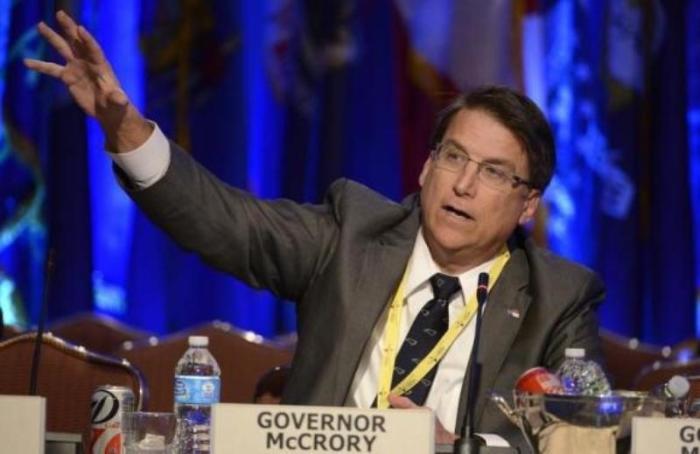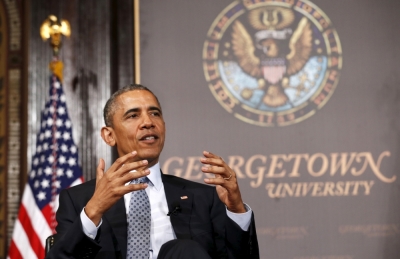Analysis: Why Are Republicans (and Obama) Attacking the Liberal Arts? (Part 1)

Conservatives should be among the strongest supporters of the social sciences and humanities, yet Republican politicians, as well as President Barack Obama, do not have a high view of those disciplines these days.
Higher education in general, and the liberal arts in particular, have become a new bogeyman in many Republican circles.
(Note: while math and science are also liberal arts, for the purposes of this discussion I am using liberal arts as shorthand for humanities and social sciences.)
In a November 2013 radio show interview with Bill Bennett, Republican North Carolina Governor Pat McCrory suggest that philosophy majors should not get government aid as he discussed legislation that would tie aid to graduate employment.
Bennett, who led the Department of Education under President Ronald Reagan, rhetorically asked, "how many Ph.D.s in philosophy do I need to subsidize?" To which McCrory responded, "you and I agree."
Last February, on the same radio show, Republican presidential candidate Sen. Marco Rubio of Florida made a similar point.
He proposed requiring schools to inform students how much each of the graduates make, by major, upon graduating. He then explained it was "so you can make an informed decision about whether it's worth taking out, you know, a Greek philosophy degree for a $20,000 dollar loan."
Three other Republicans, former Texas Gov. Rick Perry, Florida Gov. Rick Scott and Wisconsin Gov. Scott Walker are reportedly supportive of ideas from a think tank called the Texas Public Policy Foundation. That foundation once proposed tying professor pay, promotion and hiring to their "efficiency," which would be measured by the amount of grant money they bring in and how many students they teach. Humanities professors in particular, who do not rely much upon grant money and tend to teach smaller classes, would be most harmed by such a proposal.
In 2011, Scott proposed moving funding away from social sciences and into physical sciences.
"If I'm going to take money from a citizen to put into education then I'm going to take that money to create jobs. So I want that money to go to degrees where people can get jobs in this state. Is it a vital interest of the state to have more anthropologists? I don't think so," he said in an interview at the time.
When asked later about the anthropologists remark, he said, "It's a great degree if people want to get it. But we don't need them here [in Florida]."
Potential Republican presidential candidate Carly Fiorina even mocks her own Stanford liberal arts degree (philosophy and medieval history) in her standard stump speech by saying the degree made her "unemployable."
The liberal arts are not only under attack by Republicans. President Barack Obama has proposed policy changes similar to these Republicans.

In January he proposed a college rating system that would be based upon costs, graduation rates, how much money graduates make, and how many graduates go on to get advanced degrees. When he first proposed the system in his 2013 State of the Union Address, he said the purpose was to "compare schools based on a simple criteria: where you can get the most bang for your educational buck."
Throughout his presidency, when Obama talks about education he almost always talks about the STEM fields — science, technology, engineering and math.
In that same address, he said, "We'll reward schools that develop new partnerships with colleges and employers, and create classes that focus on science, technology, engineering, and math — the skills today's employers are looking for to fill jobs right now and in the future."
In a January speech, he even singled out art history as a less useful degree.
"[A] lot of young people no longer see the trades and skilled manufacturing as a viable career. But I promise you, folks can make a lot more, potentially, with skilled manufacturing or the trades than they might with an art history degree. Now, nothing wrong with an art history degree — I love art history. So I don't want to get a bunch of emails from everybody. I'm just saying you can make a really good living and have a great career without getting a four-year college education as long as you get the skills and the training that you need," he said.
Obama's STEM preference is also reflected in his immigration proposals. He wants to provide legal status to immigrants who receive an advanced degree from a U.S. university — but only if the degree is in a STEM field. Social science and humanities majors don't count.
Many of these ideas are based upon the notion that education should be like a business and students are its customers. Colleges are thought of like manufacturers. The raw product (freshmen) goes in, and four years later out comes the finished product (graduate). The value of a college education then becomes the starting salary of recent graduates.
To be fair, some of these Republican ideas do not single out liberal arts, but seek to undermine the entire higher education system.
Iowa state Republican Senator Mark Chelgren last month proposed a bill that would rate professor performance by student evaluations. The bill included a "Survivor" provision. The names of the five professors with the lowest scores for each institution would be posted on the institution's website and all the students would vote on which ones they wanted to keep. The professor with the lowest score would be fired, regardless of tenure. (The bill died in committee.)




























